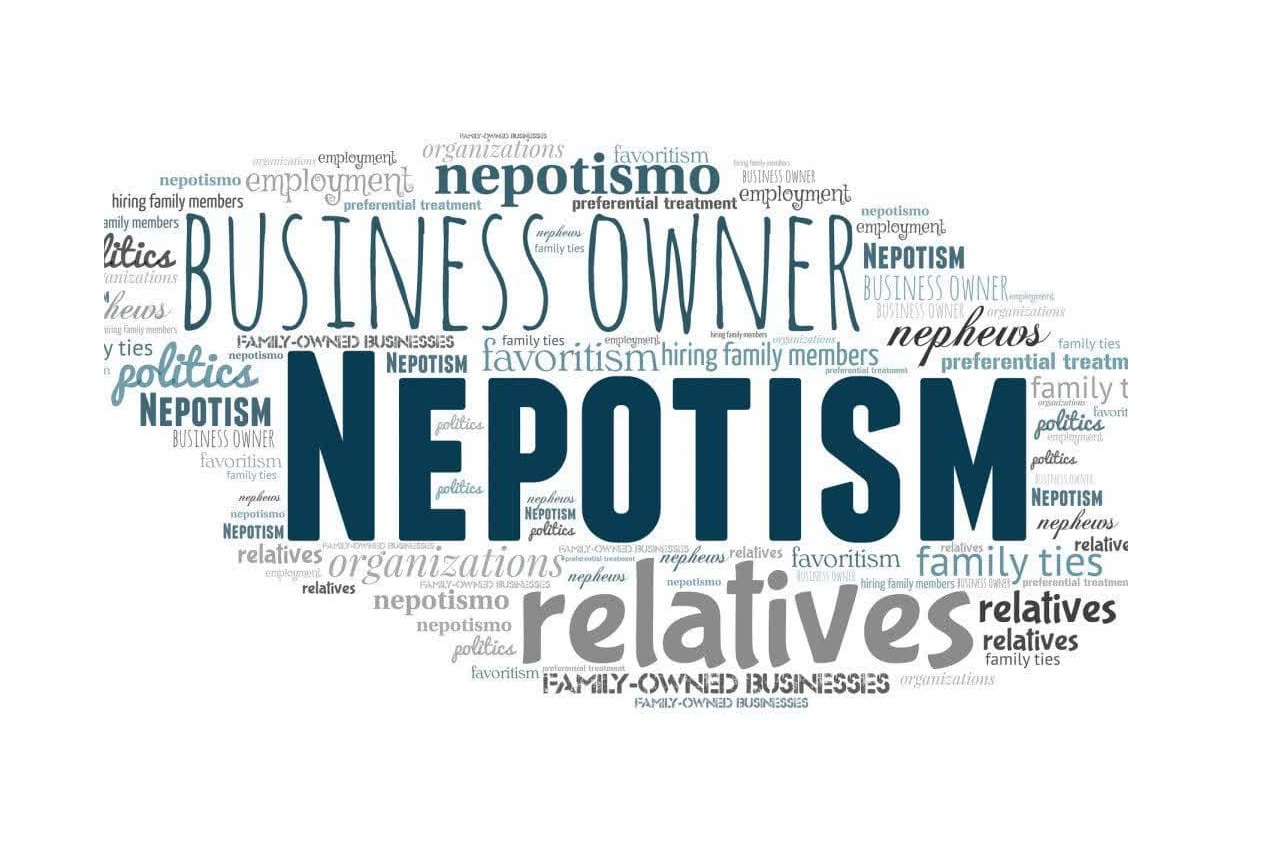Nepotism, a term derived from the Latin word “nepos” meaning nephew, refers to the practice of favoring relatives or close associates, especially in the context of employment or promotion. It manifests when individuals in positions of authority show undue preference or provide unfair advantages to their family members or acquaintances, often at the expense of more qualified candidates. While not inherently illegal, nepotism raises ethical concerns and can have detrimental effects on organizational culture, morale, and performance.
At its core, nepotism undermines the principles of meritocracy and fairness in the workplace. When hiring or promoting individuals based on familial ties rather than qualifications and performance, organizations risk fostering a culture of favoritism and inequality. This not only erodes trust and morale among employees but also hampers innovation, productivity, and overall organizational effectiveness. Moreover, nepotism can create perceptions of unfairness and injustice, leading to resentment and disengagement among employees who feel overlooked or disadvantaged due to nepotistic practices.
Despite its ethical implications, nepotism is not always illegal, especially in the private sector where companies have the autonomy to make hiring and promotion decisions based on their own criteria. However, certain jurisdictions may have laws or regulations in place to prevent nepotism in public sector employment or government contracts. For instance, many government agencies and organizations have enacted anti-nepotism policies that prohibit or restrict the hiring, promotion, or supervision of relatives to mitigate conflicts of interest and ensure fairness and transparency in the recruitment process. Additionally, labor laws may prohibit discriminatory practices based on familial status or relationships, providing legal recourse for individuals who believe they have been unfairly treated due to nepotistic practices.
Nepotism in Different Cultures
Nepotism can vary significantly across different cultures and societies, with some cultures exhibiting higher levels of nepotistic practices than others. In cultures where family ties and loyalty are highly valued, such as many collectivist societies in Asia, the Middle East, and parts of Latin America, nepotism may be more prevalent. In these cultures, relationships and personal connections often play a crucial role in business and employment decisions, with individuals prioritizing the well-being and advancement of their family members over merit or qualifications. As a result, nepotism may be deeply entrenched in societal norms and expectations, making it challenging to address or mitigate.
Conversely, in cultures that prioritize individualism, meritocracy, and egalitarianism, such as many Western societies, nepotism may be less prevalent or even frowned upon. In these cultures, there is typically greater emphasis on fairness, transparency, and equal opportunity in the workplace, with organizations striving to base hiring and promotion decisions on objective criteria and qualifications rather than personal relationships. While nepotism may still occur to some extent, it is often viewed as unethical and detrimental to organizational culture and performance, leading to efforts to mitigate its occurrence through policies and practices that promote meritocracy and diversity.
It is essential to recognize that the prevalence of nepotism can also vary within cultures, depending on factors such as industry, geographic region, and socioeconomic status. For example, nepotism may be more prevalent in certain industries or sectors where personal connections and relationships play a significant role in business dealings, such as family-owned businesses or industries with close-knit professional networks. Similarly, nepotism may be more common in regions or communities where social and economic inequalities are pronounced, as individuals may rely on familial networks for economic opportunities and social mobility. Overall, understanding the cultural and contextual factors that influence nepotism is crucial for addressing its root causes and developing effective strategies to promote fairness and meritocracy in the workplace.
Conclusion
In conclusion, while nepotism may not always be illegal, it remains a contentious issue with far-reaching implications for organizational culture, fairness, and equality in the workplace. Organizations must strive to uphold principles of meritocracy, transparency, and equal opportunity in their hiring and promotion practices to foster a culture of fairness, trust, and inclusivity. By addressing nepotism proactively and implementing policies and practices that prioritize merit and performance over personal relationships, organizations can create environments where employees feel valued, respected, and empowered to reach their full potential.

